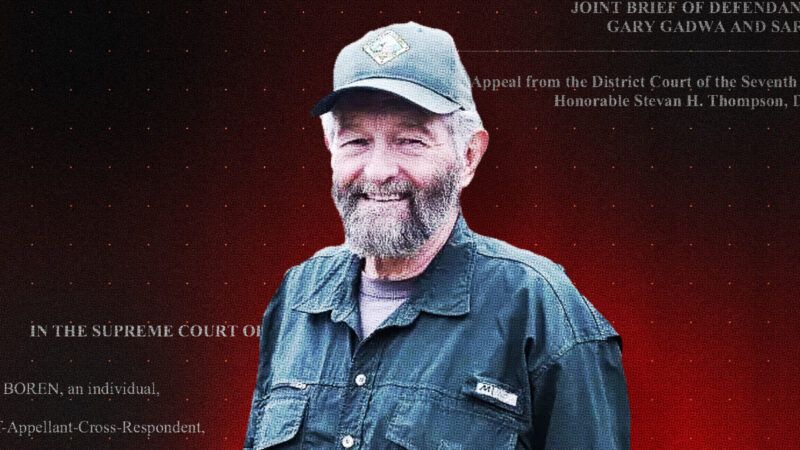Idaho Man Sued For Defamation After Speaking Out Against Local Airstrip
Critics have argued the legal action is a meritless SLAPP suit.

When Gary Gadwa spoke out against a permit for a proposed airstrip in his rural Idaho community, he didn't realize that his comments would result in a defamation lawsuit soon to appear before the Idaho Supreme Court.
In 2021, Michael Boren—co-founder of software company Clearwater Analytics—filed a permit to designate a portion of his Stanley, Idaho property as an airstrip. According to the Foundation for Individual Rights and Expression (FIRE), a First Amendment nonprofit organization providing Gadwa's legal defense, Gadwa decided to publicly oppose the permit after Boren claimed the airstrip could aid in search and rescue missions in the area.
Gadwa, who had worked in search and rescue operations in the nearby Sawtooth National Recreation Area for nearly four decades, wrote an op-ed opposing the airstrip and spoke in a county commission meeting about his concerns. Primarily, Gadwa was worried that the airstrip could hurt local wildlife and that it wouldn't actually be helpful in rescue situations.
"As members of the general public who treasure time spent hiking, horseback riding, and hunting and fishing in the Sawtooth National Recreation Area and advocates for outdoor businesses in Idaho, we're heartened that there is an important chance to halt this dangerous precedent, which threatens one of the most beloved wilderness areas in our state," wrote Gadwa along with Andy Munter, a member of the Idaho Outdoor Business Council, in an opinion article for the Post Register, a local newspaper.
While the airstrip was approved anyway, Boren decided to retaliate against Gadwa and a handful of other critics by filing defamation lawsuits against them. Last year, a state court dismissed Boren's lawsuit against Gadwa, stating that Gadwa and his several co-defendants had a First Amendment right to criticize the airstrip designation.
"In this case, there is the potential for a great chilling effect on constitutional rights not just for these named defendants but for all the members of the public who spoke on this issue, which was undoubtedly a matter of public concern in which they were entitled to involvement," wrote Judge Stevan H. Thompson in his ruling on the case, adding that the suit "appears to be a SLAPP suit brought to violate the constitutional rights."
While most states have laws designed to make it easier to dismiss strategic lawsuits against public participation (SLAPP) lawsuits, Idaho doesn't have an anti-SLAPP law. SLAPP suits are meritless legal claims filed to intimate or financially cripple an individual's critics into silence.
Despite defeat, Boren filed an appeal to the Idaho Supreme Court in March. FIRE has since filed a joint brief, written along with other lawyers working on the suit, to the state Supreme Court, urging them to affirm the lower court's ruling.
"The district court was right," reads the joint brief. "The freedoms to speak on public issues and to urge public officials to act are essential for effective self-government. That is why the First Amendment and the Idaho Constitution guarantee freedom of speech and the right to petition. And to uphold those guarantees, courts serve as gatekeepers when lawsuits like Boren's threaten free expression on public matters."
As Boren has already found out—and is likely to find out again at the Idaho Supreme Court—other people have the right to criticize you. While filing expensive defamation lawsuits is a popular technique to silence your political enemies, those you target have the right to fight back.
"I've dedicated my life to two things: protecting my community and protecting the Sawtooth Mountains," said Gadwa in a Monday press release. "I'll never stop speaking my mind, no matter who tries to silence me."


Show Comments (29)